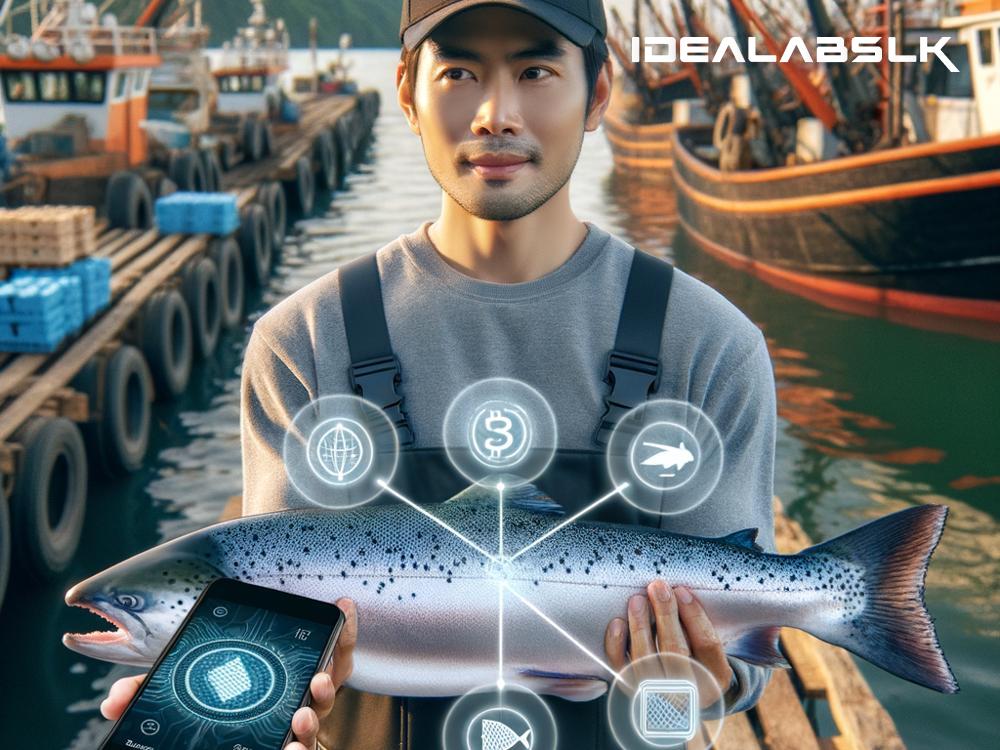Blockchain: A New Wave of Trust in Seafood Quality
In the world of seafood, freshness and quality are everything. While we all love the idea of enjoying delicious, healthy seafood, there's often a nagging question at the back of our minds: "Is this fish really as fresh and sustainably sourced as claimed?" This is where blockchain technology sails in, bringing a fresh breeze of trust and transparency to the seafood industry. Let's dive into how blockchain is revolutionizing the way we view the quality and origin of our seafood.
Understanding Blockchain
First things first, let's simplify blockchain. Imagine it as a digital ledger that is decentralized, meaning it isn't stored in one place but across a network of computers. This makes it incredibly secure and almost impossible to tamper with. Every 'block' in the chain contains a set of transactions, and once a block is added, the information is there forever.
The Challenge with Seafood
The journey of seafood from the ocean to our plates is long and complex, involving fishermen, processors, distributors, and retailers. Along this journey, there are many points where quality can be compromised—whether it's due to improper handling, mislabeling, or even intentionally selling lower-quality products as high-grade ones. For consumers, it's often a gamble, and for producers committed to quality and sustainability, it's frustrating when they're lumped in with the bad actors.
How Blockchain is Making Waves
Enter blockchain technology, the game-changer for building consumer trust in seafood quality. Here's how:
1. Traceability From Ocean to Table
With blockchain, every step of the seafood's journey is recorded in real-time on a tamper-proof ledger. From the moment a fish is caught, details such as the species, location, time, and method of capture can be logged. As the fish makes its way through processing and distribution, each step is added to the blockchain.
For consumers, this means being able to scan a QR code on their seafood package and trace its journey all the way back to the source. Not only does this ensure the quality and freshness of the product, but it also verifies its sustainability and ethical sourcing credentials.
2. Combating Fraud and Mislabeling
Seafood fraud is a big issue, with reports of species substitution (selling a cheaper fish as a more expensive one) and mislabeling rampant in the industry. Blockchain's transparent nature means any attempt to swap or mislabel seafood can be easily spotted and corrected, ensuring that what's on the label is what's in the package.
3. Encouraging Sustainable Practices
For those concerned about the environmental impact of their seafood choices, blockchain can be a powerful tool. It can verify claims of sustainability, such as whether the seafood was harvested in a way that doesn't harm marine ecosystems. Producers who adhere to sustainable practices can differentiate themselves, rewarding ethical consumer choices.
4. Empowering Small-scale Fishermen
Blockchain technology isn't just good news for consumers; it also benefits small-scale fishermen. By providing a transparent record of their sustainable and high-quality practices, it enables them to compete on a level playing field with larger companies. This can lead to better market access and fairer prices for their catch.
Looking to the Future
While the application of blockchain in the seafood industry is still relatively new, its potential is vast. Initiatives around the world are beginning to show what's possible, from tracking tuna in the Pacific to ensuring the authenticity of Norwegian salmon. As more businesses and consumers demand transparency and sustainability, blockchain stands poised to make a significant impact on the seafood industry.
The Bottom Line
Blockchain technology offers a promising solution to the longstanding issues of trust and transparency in the seafood industry. By providing an immutable, transparent record of a product's journey from ocean to table, it not only ensures the quality and authenticity of seafood but also empowers consumers to make informed, ethical choices.
As we continue to navigate the challenges of food sourcing in our globalized world, blockchain may just be the beacon of trust we need for ensuring the integrity of our seafood.
In the end, what blockchain promises is not just fresher fish on our plates, but a healthier, more sustainable relationship with our oceans. And that's a future worth diving into.

